Inflammation of the lungs is one of the common medical conditions. It is estimated that around 17 million Americans suffer from some form of lung inflammation.
What is Inflammation?
It is a general term used to describe the body’s response to infection, injury, or other irritants.
What is Inflammation of The Lungs?
Inflammation of the lungs is a condition that results when the lungs become inflamed. This may be due to infection, injury, or other reasons that harm the lungs such as inhaling dangerous fumes.
The lungs are particularly susceptible to inflammation because of their delicate nature and the large amount of surface area that is exposed to the outside world.
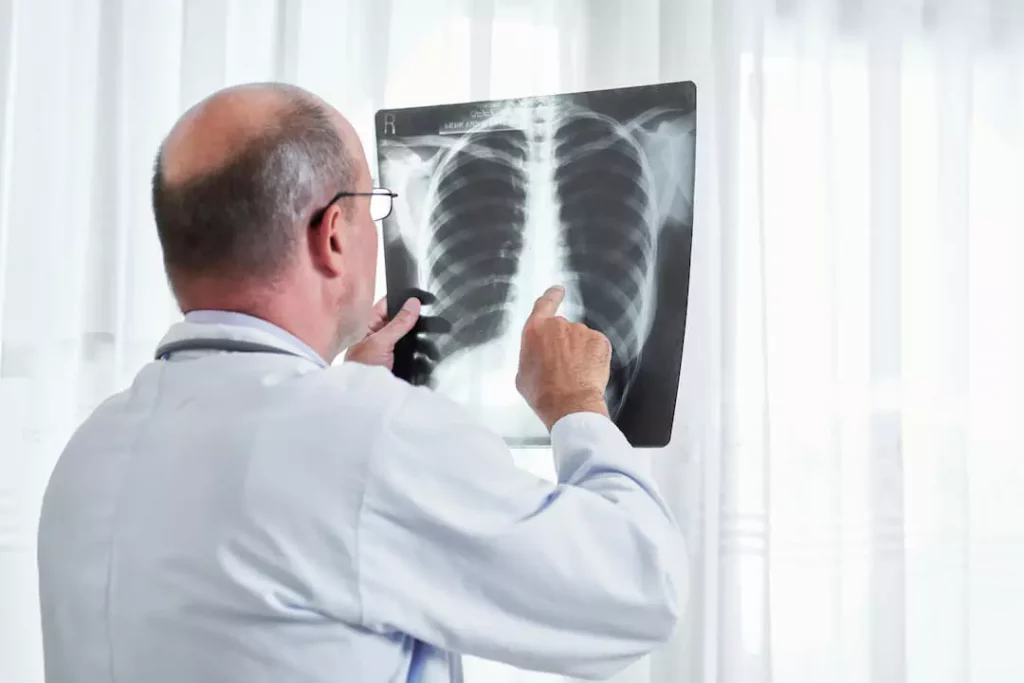
Symptoms of Inflammation of The Lungs
Symptoms of inflammation of the lungs can vary depending on the cause. The most common symptoms include:
1. Coughing
A cough is often the first sign of lung inflammation. The cough may be accompanied by mucus or blood.
2. Chest Pain
Chest pain can be a symptom of inflammation of the lungs, especially if it is worse when you breathe in.
3. Shortness of Breath
Inflammation of the lungs can make it difficult to breathe. This may be accompanied by a feeling of chest tightness because the lungs are not getting enough oxygen.
4. Fever
A fever is often present when the lungs are inflamed because of the body’s reaction.
5. Excessive Sweating
Many people with lung inflammation experience excessive sweating, especially at night.
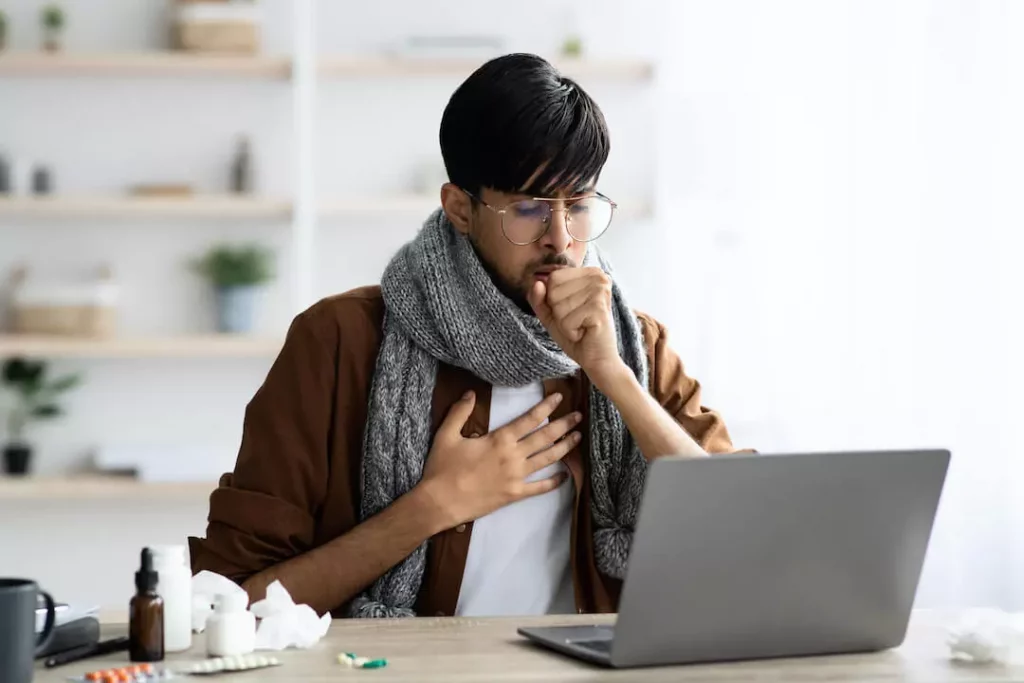
7. Loss of Appetite
Inflammation of the lungs can cause a loss of appetite due to the general feeling of malaise that accompanies the condition.
5. Fatigue
Lungs inflammation can cause fatigue and a general feeling of being unwell.
6. Wheezing
Wheezing is a common sign of lung inflammation because of the narrowing of the airways.
These symptoms can be caused by many different conditions, so it is important to see a doctor if you experience any of them.
What Causes Inflammation of The Lungs?
There are many different causes of lung inflammation. A few of the most famous cases include:
1. Infection
This is the most common cause of lung inflammation. Infections can be caused by bacteria, viruses, or fungi.
2. Injury
Injury to the lungs can occur from a variety of sources, including smoke inhalation, chemical exposure, and physical trauma.
3. Inflammatory Diseases
Some diseases, such as Tuberculosis (TB) and Sarcoidosis, can cause inflammation of the lungs.
4. Allergies
Allergies such as asthma can cause inflammation of the lungs.
5. Radiation Therapy
Radiation therapy can cause inflammation of the lungs as a side effect because of the damage it does to the cells.
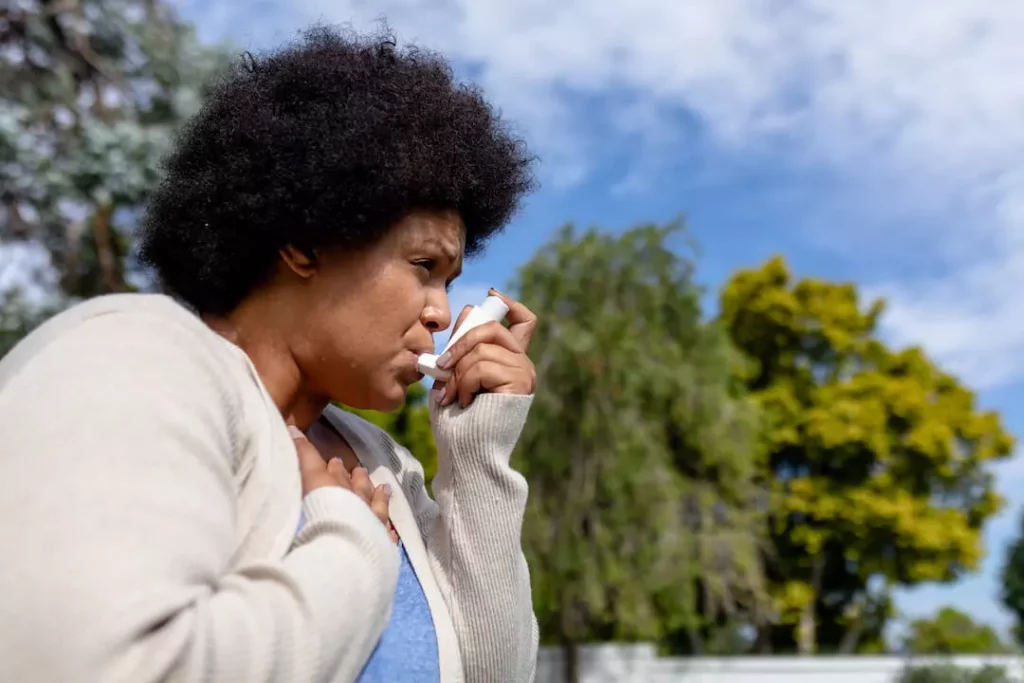
6. Environmental Pollutants
Environmental pollutants, such as cigarette smoke and molds, can cause inflammation of the lungs.
7. Birds Feather
Feathers of birds may cause lungs inflammation.
8. Medication
Some antibiotics and drugs such as a high dose of aspirin can lead to inflammation of the lungs.
You need to take care of your health by avoiding the causes of lung inflammation and watching the symptoms at the early stages.
Diagnosis of Lung Inflammation
The diagnosis of lung inflammation can be made through a variety of methods. The most common methods include:
1. Physical Examination
Your doctor will perform a physical examination and ask about your symptoms.
2. Imaging Studies
Imaging studies, such as chest x-rays and CT scans, can be used to help diagnose lung inflammation.
3. Bronchoscopy
A bronchoscopy is a procedure in which a thin tube is inserted into the lungs to allow your doctor to directly examine the lungs.
4. Biopsy
A biopsy is a procedure in which a small sample of tissue is removed from the lungs for examination.
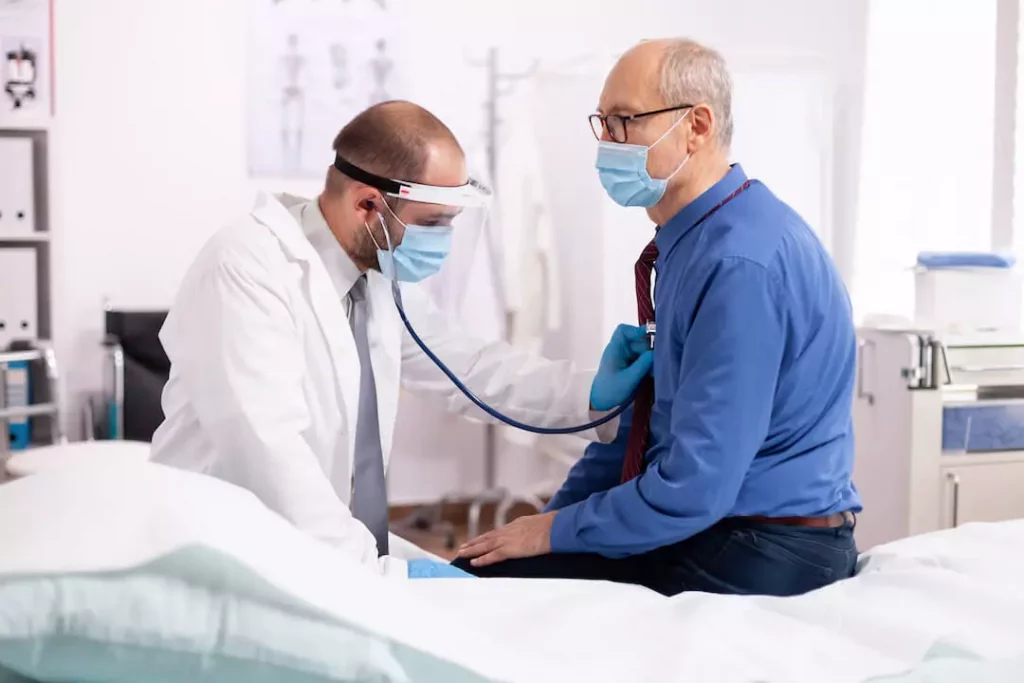
Complications of Lung Inflammation
Complications of lung inflammation can vary depending on the cause. Some common complications include:
1. Respiratory Failure
Respiratory failure is a condition in which the lungs are unable to provide enough oxygen to the body.
2. Pulmonary Edema
Pulmonary edema is a condition in which fluid accumulates in the lungs, making it difficult to breathe.
3. Collapsed Lung
A collapsed lung is a condition in which the air sacs in the lungs collapse, making it difficult to breathe.
4. Pneumonia
Pneumonia is a condition in which the lungs are infected with bacteria, viruses, or fungi.
5. Aspiration Pneumonia
Aspiration pneumonia is a condition in which food or liquids are inhaled into the lungs.
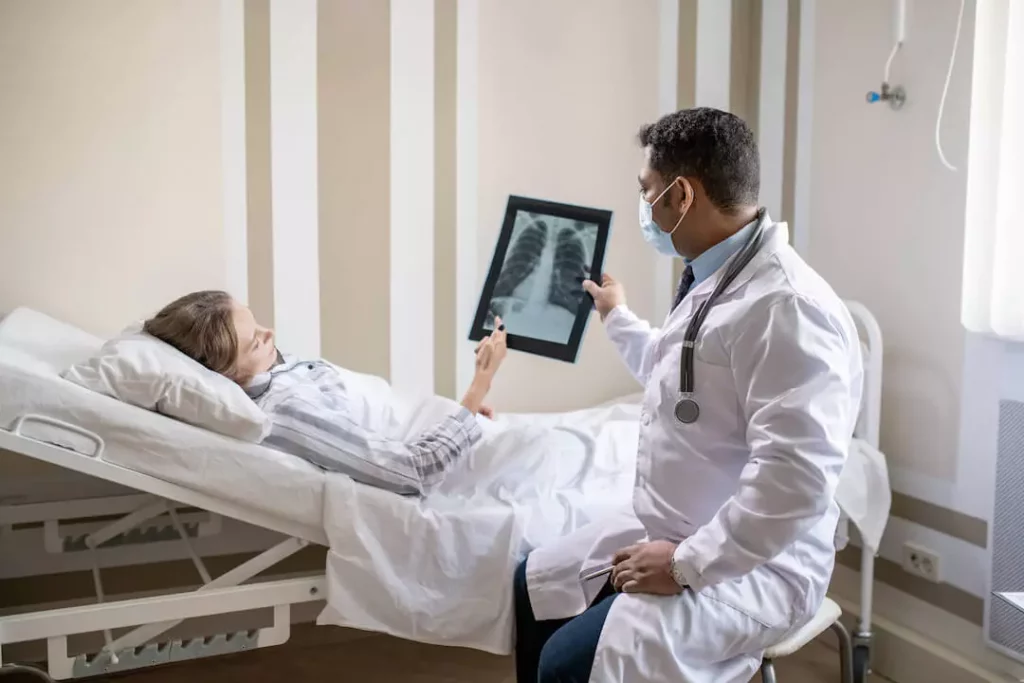
6. Bronchiectasis
Bronchiectasis is a condition in which the airways in the lungs are widened and permanently damaged.
7. Lung Cancer
Lung cancer is cancer that develops in the lungs.
Treatment of Lung Inflammation
The treatment for lung inflammation will vary depending on the cause. Some common treatments include:
1. Antibiotics
Antibiotics are used to treat infections caused by bacteria. Some of the famous antibiotics include:
- Amoxicillin (Amoxil, Trimox)
- Azithromycin (Zithromax)
- Clarithromycin (Biaxin)
2. Bronchodilators
Bronchodilators are medications that open up the airways and make it easier to breathe.
3. Corticosteroids
Corticosteroids are medications that suppress the body’s immune system and help to reduce inflammation.
4. Oxygen Therapy
Oxygen therapy is used to provide supplemental oxygen to people who have difficulty breathing.
5. Surgery
In some cases, surgery may be necessary to remove the cause of the inflammation.
The most common treatment for lung inflammation is antibiotics for infections, therapies to support breathing, and pain relief.
The course of treatment should only be decided by a doctor after a thorough examination and diagnosis of your case.
Prevention of Lung Inflammation
As they say, prevention is better than cure! There are several things that you can do to help prevent lung inflammation, here are the top prevention tips:
1. Quit Smoking
Smoking is the number one cause of lung cancer and it also increases your risk of other lung diseases.
2. Avoid Environmental Pollutants
Environmental pollutants, such as cigarette smoke, can cause inflammation of the lungs.
3. Get Vaccinated
Vaccines can help protect you from infections that can cause lung inflammation.

4. Practice Good Hygiene
Wash your hands regularly and avoid contact with sick people to reduce your risk of infection.
5. Get Checked for Inflammatory Diseases
If you have any of the risk factors for inflammatory diseases, get checked by a doctor.
6. Follow Your Doctor’s Instructions
If you are taking medications that can cause lung inflammation, be sure to follow your doctor’s instructions.
Lungs Inflammation Home Remedies
Sometimes immediate access to a doctor can be difficult, here are a few common safe home remedies that can help to relieve the symptoms of lung inflammation till you can see a doctor at the earliest time possible:
1. Rest
Rest is important for healing and it can help to relieve some of the symptoms of lung inflammation.
2. Hydration
Drinking fluids such as water and green tea can help to loosen mucus and phlegm and make it easier to cough up.
3. Use a Humidifier
A clean humidifier if used correctly and moderately can help to moisten the air and make it easier to breathe.
4. Take Over-the-Counter Pain Medications
Pain medications, such as ibuprofen and acetaminophen, can help to relieve pain and inflammation.
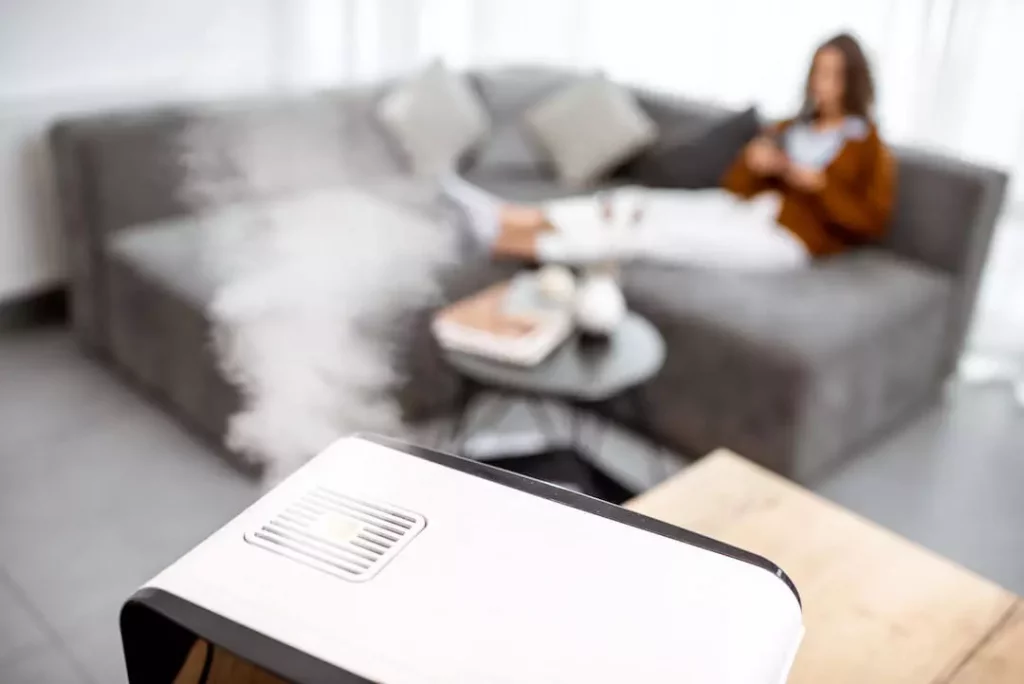
5. Get Fresh Air
Fresh air can help to clear out the lungs and reduce inflammation. The fresh air should not be cold or dry to avoid irritating the lungs.
6. Cough It Out
Coughing is your body’s way of clearing out the lungs and it can help to reduce inflammation.
7. Elevate Your Head While Sleeping
Elevating your head while sleeping can help to reduce the amount of mucus that accumulates in the lungs.
If your condition worsens, don’t wait and seek medical help immediately.
Conclusion
Inflammation of the lungs is a condition that can cause a variety of symptoms, depending on the cause. The most common treatment is antibiotics for infections, therapies to support breathing, and pain relief.
There are several things that you can do to help prevent lung inflammation, including quitting smoking, avoiding environmental pollutants, and getting vaccinated.
If you have any of the risk factors for inflammatory disease or if your condition worsens, seek medical help immediately.
Shop Top-Featured Humidifiers on Amazon
We hope you found this article useful, thank you for reading!
If you enjoyed this story, you may want to check out Smokers Silent Killer: Lung Cancer Symptoms, Stages & Causes and 8 Best Fresh Anti Inflammatory Juices for Your Health.
References: